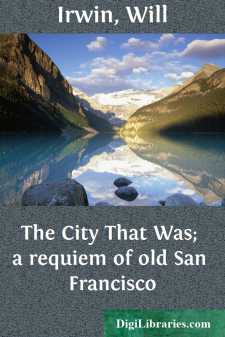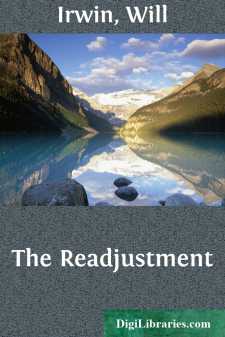Categories
- Antiques & Collectibles 13
- Architecture 36
- Art 48
- Bibles 22
- Biography & Autobiography 813
- Body, Mind & Spirit 142
- Business & Economics 28
- Children's Books 14
- Children's Fiction 11
- Computers 4
- Cooking 94
- Crafts & Hobbies 4
- Drama 346
- Education 46
- Family & Relationships 57
- Fiction 11829
- Games 19
- Gardening 17
- Health & Fitness 34
- History 1377
- House & Home 1
- Humor 147
- Juvenile Fiction 1873
- Juvenile Nonfiction 202
- Language Arts & Disciplines 88
- Law 16
- Literary Collections 686
- Literary Criticism 179
- Mathematics 13
- Medical 41
- Music 40
- Nature 179
- Non-Classifiable 1768
- Performing Arts 7
- Periodicals 1453
- Philosophy 64
- Photography 2
- Poetry 896
- Political Science 203
- Psychology 42
- Reference 154
- Religion 513
- Science 126
- Self-Help 84
- Social Science 81
- Sports & Recreation 34
- Study Aids 3
- Technology & Engineering 59
- Transportation 23
- Travel 463
- True Crime 29
The City That Was; a requiem of old San Francisco
by: Will Irwin
Categories:
Description:
Excerpt
The old San Francisco is dead. The gayest, lightest hearted, most pleasure loving city of the western continent, and in many ways the most interesting and romantic, is a horde of refugees living among ruins. It may rebuild; it probably will; but those who have known that peculiar city by the Golden Gate, have caught its flavor of the Arabian Nights, feel that it can never be the same. It is as though a pretty, frivolous woman had passed through a great tragedy. She survives, but she is sobered and different. If it rises out of the ashes it must be a modern city, much like other cities and without its old atmosphere.
San Francisco lay on a series of hills and the lowlands between. These hills are really the end of the Coast Range of mountains, which stretch southward between the interior valleys and the Pacific Ocean. Behind it is the ocean; but the greater part of the town fronts on two sides on San Francisco Bay, a body of water always tinged with gold from the great washings of the mountain, usually overhung with a haze, and of magnificent color changes. Across the bay to the north lies Mount Tamalpais, about 3,000 feet high, and so close that ferries from the waterfront take one in less than half an hour to the little towns of Sausalito and Belvidere, at its foot.
Tamalpais is a wooded mountain, with ample slopes, and from it on the north stretch away ridges of forest land, the outposts of the great Northern woods of Sequoia sempervirens. This mountain and the mountainous country to the south bring the real forest closer to San Francisco than to any other American city. Within the last few years men have killed deer on the slopes of Tamalpais and looked down to see the cable cars crawling up the hills of San Francisco to the south. In the suburbs coyotes still stole in and robbed hen roosts by night. The people lived much out of doors. There is no time of the year, except a short part of the rainy season, when the weather keeps one from the fields. The slopes of Tamalpais are crowded with little villas dotted through the woods, and these minor estates run far up into the redwood country. The deep coves of Belvidere, sheltered by the wind from Tamalpais, held a colony of "arks" or houseboats, where people lived in the rather disagreeable summer months, coming over to business every day by ferry. Everything there invites out of doors.
The climate of California is peculiar; it is hard to give an impression of it. In the region about San Francisco, all the forces of nature work on their own laws. There is no thunder and lightning; there is no snow, except a flurry once in five or six years; there are perhaps half a dozen nights in the winter when the thermometer drops low enough so that in the morning there is a little film of ice on exposed water. Neither is there any hot weather. Yet most Easterners remaining in San Francisco for a few days remember that they were always chilly.
For the Gate is a big funnel, drawing in the winds and the mists which cool off the great, hot interior valleys of the San Joaquin and Sacramento. So the west wind blows steadily ten months of the year; and almost all the mornings are foggy. This keeps the temperature steady at about 55 degrees—a little cool for the comfort of an unacclimated person, especially indoors. Californians, used to it, hardly ever think of making fires in their houses except in a few days of the winter season, and then they rely mainly upon fireplaces. This is like the custom of the Venetians and the Florentines.
Give an Easterner six months of it, however, and he, too, learns to exist without chill in a steady temperature a little lower than that to which he was accustomed at home....




